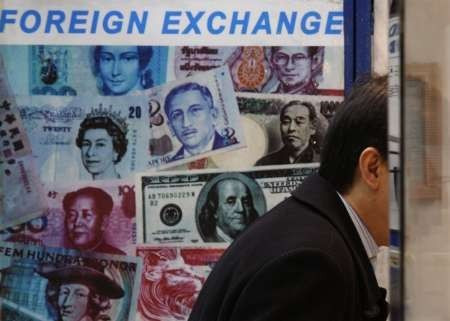Senate Easily Passes Procedural Measure for China Currency Bill, 79-19

The U.S. Senate is as mad as you-know-what and it's apparently not going to take it anymore: the Senate Tuesday voted overwhelmingly, 79-19, to put pressure on China to allow its currency to appreciate.
Supporters of the bill argue that it'll create as many as 1.6 million new jobs, in many cases by keeping the jobs at home. Opponents say the bill is a risky, dangerous attempt to influence China that could lead to a trade war: they argue that diplomacy, rather than legislation, is the best way to address the currency valuation issue.
If approved, the bill would allow U.S. companies to impose tariffs on companies from any country whose currency valuation is deemed to be out of alignment.
The bill faces an uncertain future in the U.S. House of Representatives. House Speaker John Boehner called the bill a pretty dangerous move for the Congress to make, thehill.com reported Tuesday.
I'm concerned about the Chinese currency situation. There's been an awful lot of work done over the last seven or eight years to try to bring its valuation up, Boehner told reporters at the Capitol. But I think it's pretty dangerous to be moving legislation through the United States Congress forcing someone to deal with the value of their currency. This is well beyond, I think, what the Congress ought to be doing. While I have concerns about how the Chinese have dealt with their currency, I'm not sure this is the way to fix it.
U.S., China at Odds on Yuan's Value
Up to now, the U.S. Congress has delayed implementing a full-court press against China, preferring to let the executive branch, the George W. Bush and Obama administrations -- to motivate or encourage China to let the yuan appreciate. The executive branch efforts has only been a minimal - and some would say statistically insignificant - success.
China keeps it currency, the yuan, pegged to the dollar at roughly 6.83 yuan to the dollar. The peg has the effect of substantially decreasing the price of China's exports to the U.S., which in many cases gives China-based companies a price advantage.
China argues that the fixed yuan is necessary for its embryonic, vulnerable economy, and that the world benefits from cheaper goods.
The U.S. counters that the practice is the equivalent of monetary mercantilism -- an unofficial subsidy that enables China to grab market share for exports that it wouldn't otherwise if the yuan was allowed to float freely.
Monetary/Economic Analysis: The Senate's action is long overdo. No, the House isn't likely to approve the measure. But that'll probably nudge China - Beijing rhetoric aside, to allow the yuan to appreciate faster. And if that occurs, that'll be a victory for U.S. companies, for trade fairness, and for U.S. jobs growth.
© Copyright IBTimes 2025. All rights reserved.




















